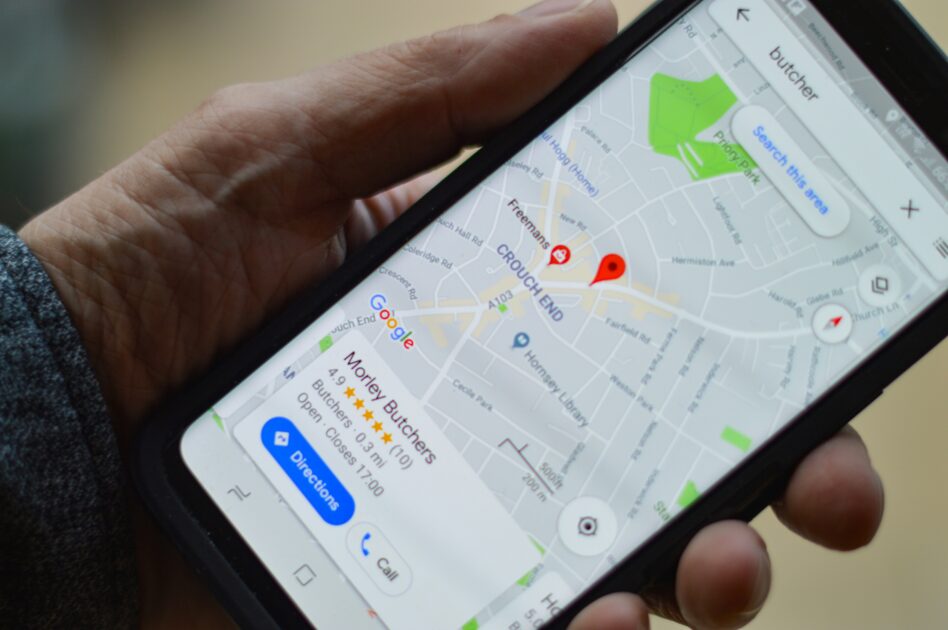Gen-Z and Brand Loyalty: How Brands Can Win Gen-Z Loyalty
Over the years, brand loyalty has played a critical role in helping organizations with customer retention, customer lifetime value, and overall customer satisfaction. It’s been an important aspect of consumer behavior that brands have relied on for repeat purchases. However, for many consumers today, brand loyalty doesn’t hold as much weight or influence as it once did.
According to research by McKinsey & Company, 62% of Gen-Zers said they would check out other options, even if they have a favorite brand. And among those with a favorite brand, more than 50% would switch it up if another brand were cheaper or higher quality.
The shift in Gen-Z buyers is coming and with it, a whole new understanding of brand loyalty, expectations, and standards. How can companies win over Gen-Z loyalty? Let’s first dive into what makes customers more loyal to brands.
What Makes Gen-Z Customers Loyal?
Remember the days when customers would wait in line for hours for a product unveiling and release. What would drive a customer to be that dedicated and loyal to a brand?. Some key motivators could be attributed to price, quality, and service but what it really comes down to is how the brand makes the customer feel. It’s connected to emotions and the most important emotion for brand loyalty in the U.S are feelings of being valued, appreciated, and confident.
Brands that can tug into the emotions are going to be the brands that win the race. It’s still important to focus on the basics of the customer experience such as streamlining the purchase process, simplifying onboarding, and responding in a timely manner but what will differentiate brands from the competition is having the ability to influence emotions into the customer experience. When a customer feels valued, appreciated, or confident, it inspires them to share their experience and love for a brand to a larger audience. The same can also be true for bad experiences as well, which is why social media has played a key role in influencing Gen-Z loyalty with brands.
Reviewing Feedback and Actually Taking Action
Social media has had a profound impact on Gen-Z’s brand perceptions and loyalty. This generation has grown up with constant access to information and peer-to-peer reviews, making them highly skeptical of traditional advertising and marketing tactics. Instead, they rely heavily on social media influencers, online reviews, and recommendations from friends and family.

Online reviews and ratings also play a significant role in shaping Gen-Z’s brand perceptions. This generation is highly likely to research products and services extensively before making a purchase, relying heavily on the experiences and opinions of others. Negative reviews or poor ratings can be detrimental to a brand’s reputation among this demographic, as they value authenticity and transparency above all else.
To successfully navigate this landscape, brands must embrace social media and actively engage with their Gen-Z audience. Listen in on what’s being said, scrape popular review sites across the web and understand your standing within key markets. Does your brand have a positive reputation or negative one? By knowing this, brands can take proactive steps to respond to negative online reviews, showing that they care and are listening.
Personalizing and customizing the customer experience
Another area to focus on fostering brand loyalty with Gen-Z is creating a unique and personalized experience that caters to their individual preferences and lifestyle. They expect brands to understand their needs, values, and aspirations, and to offer products and services that align with their distinct identities. This generation has grown up in a world where customization and personalization are the norm, and they are less inclined to settle for one-size-fits-all solutions.
Starbucks and T-Mobile are just a few brands who have done an excellent job of having customers feel valued and appreciated with free coffee on your birthday and a free gift/discount every Tuesday via the T-Mobile Tuesday app. These brands have found a way to personalize the experience just for you and will even email you to celebrate your special day. Efforts like this is what it takes today to win brand loyalty.
Companies must leverage data and technology to deliver tailored offerings. By collecting and analyzing customer data, brands can gain insights into Gen-Z’s behaviors, interests, and preferences, enabling them to create personalized marketing campaigns, product recommendations, and customized experiences. Personalization can take many forms, from customizable products and services to tailored content and communication strategies. For example, fashion brands can offer virtual try-on experiences or personalized styling recommendations based on customers’ preferences and body measurements. Food and beverage companies can leverage data on dietary preferences and taste profiles to suggest personalized meal plans or product recommendations.
Moreover, Gen-Z values transparency and authenticity, so brands should be transparent about how they collect and use customer data, while respecting privacy concerns. Offering customization options and allowing customers to co-create products or experiences can further strengthen brand loyalty by making Gen-Z feel valued and heard. By embracing personalization and customization, brands can differentiate themselves from competitors, create a sense of exclusivity, and foster deeper emotional connections with Gen-Z consumers, ultimately strengthening brand loyalty and customer satisfaction.
Delivering exceptional customer experiences
Delivering exceptional customer experiences is paramount for brands aiming to foster loyalty among Gen-Z consumers. This tech-savvy generation has grown up with instant gratification and seamless digital interactions, shaping their high expectations for convenience and responsiveness.
To meet these demands, brands must prioritize an omni-channel approach, ensuring a consistent and cohesive experience across all touch points, whether online, in-store, or through mobile apps. Gen-Zers expect to move seamlessly between channels, with their preferences and interactions recognized and integrated. Personalization is key, as Gen-Z consumers value tailored experiences that cater to their individual needs and preferences. Leveraging data analytics and artificial intelligence can help brands anticipate customer needs and deliver relevant, contextualized offerings and communications.
Furthermore, Gen-Z places a high value on speed and efficiency. Brands should streamline processes, such as checkout and customer service, to minimize friction and frustration. Implementing technologies like chatbots, self-service portals, and real-time inventory tracking can enhance the overall customer experience.
Transparency and open communication are also essential. Gen-Z consumers expect brands to be responsive, authentic, and transparent in their interactions. Providing clear and timely updates, addressing concerns promptly, and fostering open dialogue can help build trust and strengthen customer relationships.
By delivering exceptional customer experiences that meet Gen-Z’s high standards, brands can differentiate themselves, foster loyalty, and create lasting connections with this influential consumer segment.
How to Measure Brand Loyalty?
In the fast-paced world of Gen-Z, brands must remain agile and adaptable to stay relevant. This generation’s preferences and behaviors are constantly evolving, influenced by social trends, technological advancements, and shifting cultural norms. To successfully strengthen customer bonds and maintain brand loyalty, companies need to embrace a data-driven approach and continuously monitor these changes.
Leveraging data analytics and consumer insights is crucial for understanding Gen-Z’s evolving needs and expectations. By analyzing data from various sources, such as social media interactions, online reviews, and purchase patterns, brands can identify emerging trends and adjust their strategies accordingly. This data-driven approach allows companies to make informed decisions, tailor their offerings, and deliver personalized experiences that resonate with this dynamic generation.
Additionally, brands should actively seek feedback from Gen-Z consumers through surveys, focus groups, and direct engagement. Encouraging open communication and actively listening to their voices can provide valuable insights into their desires, pain points, and aspirations. This feedback loop enables brands to iterate and refine their products, services, and marketing strategies to better align with Gen-Z’s changing preferences.
Embracing an agile mindset and fostering a culture of continuous learning and improvement is also essential. Brands should be willing to experiment, test new ideas, and quickly adapt based on the results. Rapid prototyping, A/B testing, and iterative development processes can help brands stay ahead of the curve and respond swiftly to emerging trends and shifts in consumer behavior.
By continuously measuring and adapting to Gen-Z’s changing preferences, brands can build stronger connections, foster brand loyalty, and remain relevant in an ever-evolving market. Embracing a data-driven, customer-centric approach and maintaining an agile mindset will be crucial for brands to thrive in the dynamic landscape of Gen-Z consumer behavior.
Creating lasting connection with Gen-Z
As Gen-Z continues to shape the future of consumer behavior, brands should anticipate an even greater emphasis on the customer experience. By prioritizing quality, service, and engagement, companies can build trust and loyalty with all generations.
Ultimately, the key to success lies in fostering genuine connections and transparency with Gen-Z. By actively listening, collaborating, and empowering this generation, brands can stay attuned to their evolving needs and preferences, ensuring long-term customer satisfaction and brand loyalty.
Gen Z Loyalty Frequently Asked Questions
How can brands win Gen Z loyalty?
Brands can win Gen Z loyalty by embracing authenticity, aligning with social values, offering personalized experiences, and maintaining a strong digital presence that engages Gen Z across platforms they frequent.
What values are important to Gen Z when choosing brands?
Gen Z values sustainability, transparency, inclusivity, and ethical practices when deciding which brands to support.
How can brands build lasting relationships with Gen Z?
Brands can build relationships by fostering community engagement, listening to feedback, and offering unique, personalized interactions.




